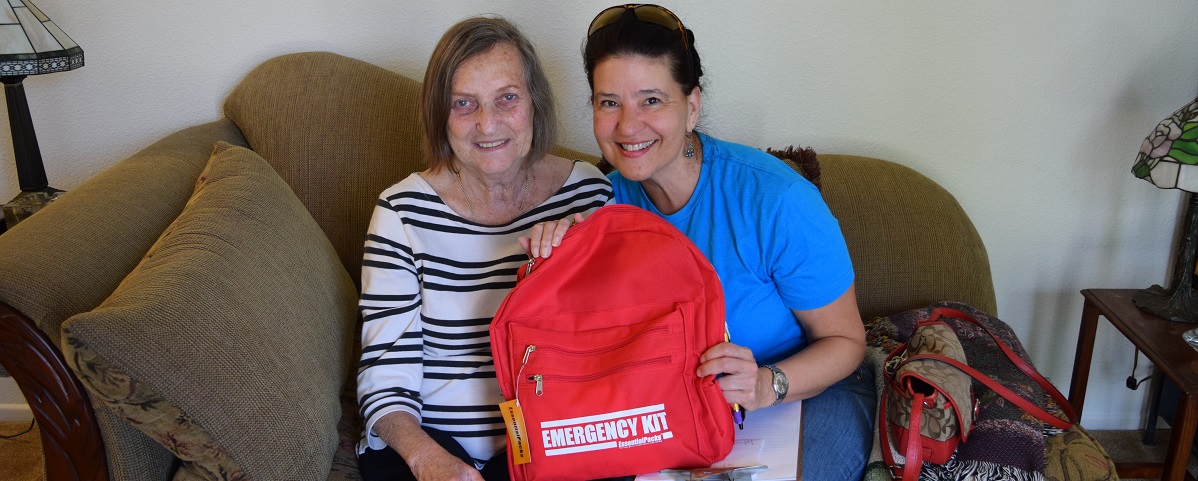Educating isolated older adults about emergency preparedness is Mary Drummer’s true purpose. It’s her passion.
And it’s what compels the long-time Beach Cities Health District (BCHD) volunteer to drive far and wide throughout the Beach Cities delivering backpacks filled with lifesaving supplies to the community’s most vulnerable residents, many of whom require special accommodations to live independently in their homes and rely on daily medications that they can’t afford to go without in the event of an emergency.
Residents like 77-year-old Lois Parker, who recently suffered a stroke and lives alone in her Redondo Beach apartment. A few weeks ago, Care Manager Shiori Lange, MSW, a BCHD social worker whose job is to keep Lois living at home for as long as safely possible, identified her aging client’s need for emergency supplies and training and referred her to BCHD’s recently-created Emergency Preparedness Program.
And that’s where Mary comes in, and with her, a backpack complete with non-perishable food, a flashlight, whistle, personal care items and more. During the in-home visit, which lasts about an hour, she carefully walks Lois through each item, explaining its purpose in great detail and providing instruction on proper usage. Next, she guides her through an informational packet that details lifesaving procedures to follow should disaster strike, kindly emphasizing the importance of creating a plan of action, keeping critical documentation handy and stockpiling a week’s worth of medication in a safe, accessible place.
By the visit’s end, Lois is smiling, joking and feeling empowered to face the unexpected. That’s what’s become known around BCHD as the “Mary Drummer Effect.”
“Most people don’t think disaster preparedness is the most exciting or glamourous thing, but it’s really important,” said Mary, a former registered nurse. “Teaching is the biggest part of what I do — showing people how and when to use their supplies, ‘here’s your whistle; you can use it if you’re trapped in the house and can’t get out during a disaster.’ It’s very gratifying to see the light bulb go off above their heads in these situations.”
Since BCHD launched the program in 2015, Mary has completed more than 75 home visits, accounting for 40 percent of all of BCHD’s emergency preparedness-related client visits.
But for as much as she gives, Mary believes she is the true beneficiary of the program.
“This project graced me with the opportunity to hold the hand of a holocaust survivor and dozens of others who are facing chronic pain, disease and disability, yet living with joy,” she said. “These are courageous members of our community and at the end of each visit I walk away thinking ‘I want to be just likethem when I grow up.’”




